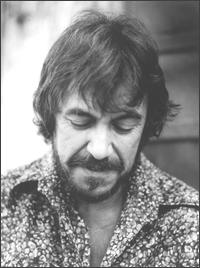“Walking to New Orleans: The Music of Fats Domino and Dave Bartholomew,” scheduled for Nov. 8-13, consists of evening lectures, interviews and film screenings at the museum; a day-long conference at Case Western Reserve University; and a culminating tribute concert at Cleveland’s Palace Theater in Playhouse Square. Confirmed performers include Bartholomew, Lloyd Price, Dr. John, Irma Thomas, Robert Parker and the Rebirth Brass Band.
The American Music Masters program, the Hall of Fame’s signature series, spotlights key figures in the evolution of popular music whose stories and contributions warrant wider recognition. Past honorees include Woody Guthrie, Robert Johnson, Lead Belly, Hank Williams, Louis Jordan, Buddy Holly, Sam Cooke, Jerry Lee Lewis, Les Paul and Janis Joplin.
“We’ve told a lot of great stories in this program, but we haven’t yet told the New Orleans story,” said Dr. Lauren Onkey, the Rock ‘n’ Roll Hall of Fame and Museum’s vice president of education and public programs. “Because it’s the 15th anniversary of the museum, it seemed like a great time. We want to do it justice.”
Only twice before has the series focused on a living musician, and two individuals have never been honored in the same year. With Domino and Bartholomew, the series will examine one of the most successful partnerships in rock history.
“When you think about choosing people for this event, the list narrows pretty quickly, because you’re looking for artists who made a huge impact,” Onkey said. Domino and Bartholomew “have been on our radar for a long time. Some people would say they created rock ‘n’ roll. We can all agree that they are some of the key people in the creation of the music.
“Their collaboration brought together different traditions and sounds in an exciting way. In terms of the work they did together, it’s a wonderful story that not enough people know.”
In 1949, Bartholomew was a respected trumpeter and bandleader working as a talent scout for Imperial Records. He “discovered” Domino performing in a neighborhood bar and became his producer and co-writer.
Their first collaboration, “The Fat Man,” is widely considered the first true rock ‘n’ roll record. Working at Cosimo Matassa’s studios in and around the French Quarter, Domino and Bartholomew crafted a remarkable string of hits in the 1950s and early ‘60s. Reportedly, only Elvis Presley outsold Domino in the 1950s.
In 1986, Domino stood alongside Elvis Presley, James Brown, Chuck Berry, Buddy Holly, Jerry Lee Lewis, Sam Cooke, the Everly Brothers and Little Richard in the Rock ‘n’ Roll Hall of Fame’s inaugural inductee class. Bartholomew was inducted in 1991 in the non-performer category.
“It’s a great feeling and honor to be recognized at this point in my life,” Bartholomew said. “At almost 90, I look back at my career and I think about the people before us and the people that followed in our footsteps. I think we had a helluva ride and I thank the Rock and Roll Hall of Fame for recognizing our catalog and our place in music history.”
Bartholomew has confirmed his attendance, and organizers hope Domino will attend as well. “We’ve had great response and cooperation from Dave and his family and Fats and his family,” Onkey said.
In addition to the announced New Orleans performers, the tribute concert is likely to include marquee special guests. Past performers at American Music Masters concerts have included Bruce Springsteen, Robert Plant and Alison Krauss, and Aretha Franklin with Solomon Burke and Elvis Costello. Domino is not lacking in famous fans, as evidenced by the who’s who of stars on “Goin’ Home: A Tribute to Fats Domino,” a 2007 benefit CD produced by the Tipitina’s Foundation.
The Hall of Fame museum’s exhibits on the 1950s and rhythm & blues contain artifacts related to New Orleans. In conjunction with the American Music Masters program, some objects – a Bartholomew trumpet, handwritten musical scores to “Blueberry Hill” and “Walking to New Orleans,” a Domino shirt – will be grouped together in a small, dedicated exhibit.
All American Music Masters panels and interviews are archived at the museum. As part of its educational outreach program, the museum plans to create a course for high school students about Domino, Bartholomew and the early history of rock ‘n’ roll in New Orleans.
The tribute concert “is always a killer show,” Onkey said, “but we really see it as key to our education mission.”


